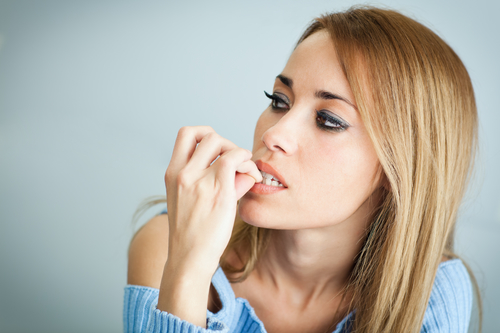
Anxiety in Women
Have you seen Elizabeth Vargas’ interview with Diane Sawyer? Ms. Vargas sat down with Diane Sawyer for a special edition of ABC News 20/20 to speak about her struggle with alcoholism and anxiety, including her recovery process.
“There are days when you wake up and you’re feeling so horrible, that the only thing that will make you feel better is more alcohol. And that’s when you’re in the death spin. That’s when people die,” she said.
(ALEXIA FERNANDEZ, People.com,09/10/2016 AT 12:50 AM EDT)
One must admire such a popular news woman having the courage to risk her career to go public with this…and even writing a book, ‘Between Breaths: A Memoir of Panic and Addiction’, for other women to learn and openly acknowledge their own anxiety.
There is no stigma here. Nothing to hide. No embarrassment. Anxiety disorders are the most common mental illness in the United States. According to the Anxiety and Depression Association of America (ADAA), 40 million Americans over the age of 18 are affected by anxiety — roughly 18 percent (nearly 1 in 5) of the nation’s population.
Studies show that women may be more prone than men to self-medicate for mood problems with substances such as alcohol (Brady and Randall 1999). Furthermore, empirical inspection of gender differences in stress-related drinking has shown that women report higher levels of stress and have a stronger link between stress and drinking (Rice and Van Arsdale 2010; Timko et al. 2005). Together, these results suggest that women may be more likely to rely on alcohol to manage anxiety.
Why women, more than men?
Clearly sex hormones like estrogen play a critical role in anxiety. Women are more than twice as likely as men to feel anxiety, especially during the hormonal ups and downs (womentowomen.com/emotions)anxiety-mood/anxiety-and-worry-in-women-causes-symptoms-and-natural-relief/4/)
The connection between alcohol/drugs and mental health is not made enough and cannot be made too often. Once a using pattern begins, often innocently enough, it can come to have a life of its own. No longer is the person downing a drink, now drink is downing the person.
(Dr. Tian Dayton Clinical Psychologist and author Why We ‘Self-Medicate’ Our Own Depression or Anxiety, Huffington Post, 05/09/2013 02:34 pm ET Updated July 2013)
Women tend to develop alcohol-related diseases and other consequences of drinking sooner than men, even though drinking smaller cumulative amounts of alcohol. Women are also more likely to abuse alcohol and other substances in order to self-medicate problems such as depression, anxiety, and stress, or to cope with emotional difficulties. (Health Guide, Adapted with permission from Alcohol Use and Abuse, a special health report published by Harvard Health Publications.)
According to National Center for Biotechnology Information
National Library of Medicine – National Institutes of Health
(ncbi.nlm.nih.gov), anxiety disorders are more strongly associated with alcohol dependence than with alcohol abuse (e.g., Hasin et al. 2007; Kessler et al. 1996; Kushner et al. 2008)
Remember, alcohol dependence is different than alcohol addiction. This is an important distinction.
This is where Counseling on Demand comes in. Our counselors and therapists know the difference and what to do about it. Ms. Vargas did it. You can too.
We are online at CounselingonDemand.com, away from prying eyes.
We are only a click away.